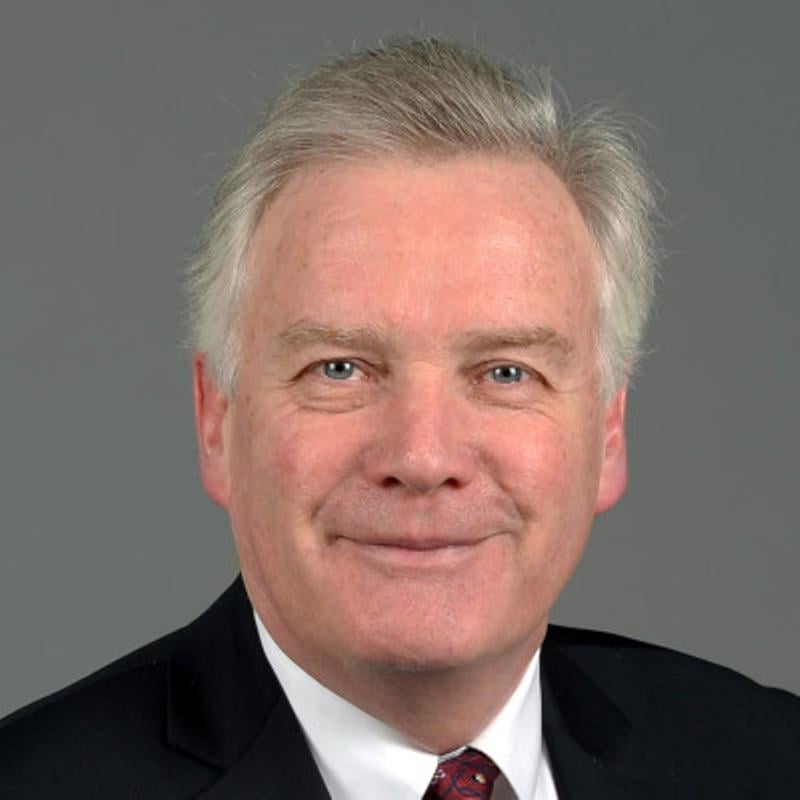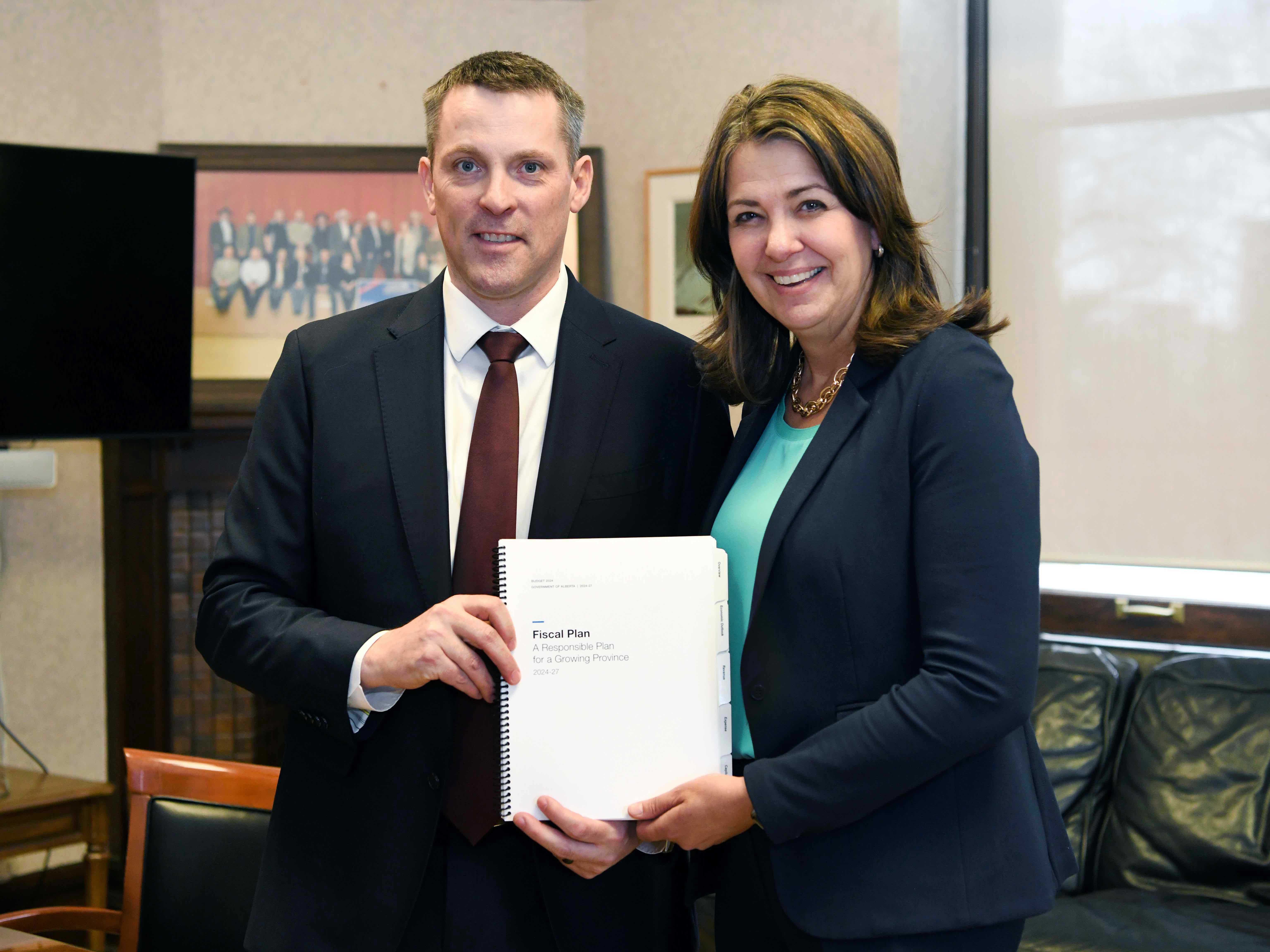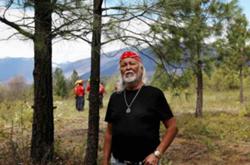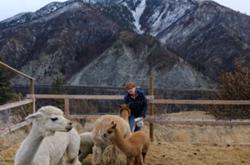It is a budget of broken promises, misleading numbers and fanciful thinking — all resting on the quicksand of fossil fuel revenue.
And to quote Alberta Finance Minister Nate Horner, “It’s confusing.”
That was Horner’s summation when describing the “surplus” in the Alberta budget he unveiled Thursday in Edmonton.
The Alberta government claims a budget surplus of almost $400 million this year. However, it will have to borrow money to get there, more than $2 billion. Government officials called this an “accounting surplus.”
To avoid going down the rabbit hole of “cash-based accounting” versus “accrual-based accounting,” let’s just say Alberta’s surpluses in the past have been of the cash variety. Put simply, more money in than money out equals a cash surplus.
Running an “accounting surplus” is not only misleading but part of an oxymoronic shell game performed by the government of Premier Danielle Smith to convince Albertans that the government is running a balanced budget, as promised, but has no money to give Albertans a tax break of about $760 each, promised by Smith on day one of last May’s provincial election campaign.
This is very much a post-election budget — unlike the pre-election budget a year ago that had so many rainbows and unicorns it could have been a children’s colouring book.
The government remains dangerously reliant on revenue from oil and natural gas. In the new fiscal year, for example, more than $17 billion, or 24 per cent, of total government revenue is forecast to come from non-renewable resources. That number is a decrease of $2 billion from last year.
During a televised address to the province last week, Smith admitted “we simply cannot continue to rely on $16 billion or more in resource revenues to balance our budget year in and out.”
It was a statement as true as it was welcome to anyone concerned about Alberta’s continued roller-coaster ride reliance on oil prices. But Smith rejected any notion of a tax hike to help smooth the ride (even though, by the way, there is a $200 tax being slapped on the purchase of new electric vehicles courtesy of a government seemingly determined to stymie green energy).
For decades Alberta governments have refused to seriously entertain the notion of introducing a provincial sales tax — the PST acronym menacingly referred to as the Political Suicide Tax.
Smith’s solution to even things out: aggressively grow the Alberta Heritage Savings Trust (also known as Alberta’s “rainy day fund,” initiated by premier Peter Lougheed 50 years ago).
In last week’s address, Smith talked of getting the fund, currently about $22 billion, to somewhere between $250 billion and $400 billion by 2050 so that one day Alberta would finally be off the roller-coaster.
Her comments raised expectations the government would start funnelling money into the fund every year from now on.
But no.
The government will put $2 billion into the fund this year and nothing the year after, or the year after, because there won’t be enough money.
The government could put more money into the fund when the province again runs a cash surplus. But, ironically, that means relying on revenue from the fossil-fuel-price roller-coaster to produce enough money to invest in the Heritage Fund so that one day Alberta could get off the ride. In this scenario, the lurching roller-coaster becomes a dizzying merry-go-round.
Even though the government says it will reveal a detailed plan for the Heritage Fund later this year, Horner suggested the fund will simply be left alone to retain its income and through the magic of compound interest will grow to at least $250 billion.
But as NDP Leader Rachel Notley pointed out, it’s hard to believe Smith after she abandoned the campaign promise of a tax cut. “This is a premier who could not keep a promise for eight months and she literally expects us to believe her commitment for something that’s going to happen 26 years from now? Come on.”
But the Alberta budget, of course, isn’t just about what might happen in a couple of decades but how it affects Albertans right now.
The province will spend a record $73 billion this year, but is deliberately keeping spending on services to below the rate of inflation and population growth.
So, even though the government is giving more to health and education, they will be hit by what is in effect a two-per-cent cut.
Overall, Alberta is doing well, all things considered, especially when compared with other more hard-pressed provinces.
But it is run by a government that publicly admits it cannot rely on fossil fuels to pay the rent and doggedly refuses to do anything about it. ![]()

















Tyee Commenting Guidelines
Comments that violate guidelines risk being deleted, and violations may result in a temporary or permanent user ban. Maintain the spirit of good conversation to stay in the discussion and be patient with moderators. Comments are reviewed regularly but not in real time.
Do:
Do not: